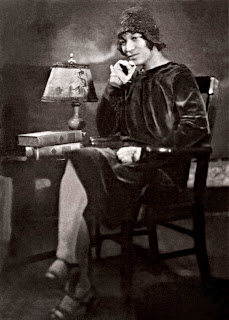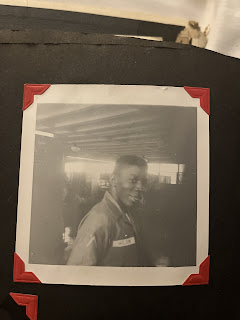Still Have Joy
I just finished reading Zora Neale Hurston's recently and posthumously released Barracoon: The Story of the Last "Black Cargo" and while it's not as heavy as you might think on the surface, it weighs heavily on you, especially once you've finished. I'll try to describe my experience without ruining it for you since it's release was so recent.
Throughout the first few chapters of the book, you realize again and again that the lust for power does not see skin tone. We cannot deny that Africans were warring on other Africans with the sole purpose of sending them essentially to their deaths in slavery. Ruminating on the idea does not make it better and probably only exacerbates the negative feelings even more. To think that man is capable of selling his fellow man for a gold coin or two. And while society today says, "Look around, slavery has been over for decades! Why are we still talking about this?" The reality is, slavery is still rampant, it just comes in different shapes (the prison industrial complex) and sizes (Libya slave trade). So don't get comfortable, there is still much work to be done.
This book says so much, both to the point and indirectly, about so many topics. Hurston did a phenomenal job in not placing herself anywhere within or on top of the storyline at all. She let Cudjo tell it the way he wanted, just as it happened. The story of seemingly never-ending loss and yet still, the man who has lost so much is still here. His story reminds me a lot of Job from the Bible. Losing all because of a test. Lots of academics and "woke" individuals will gladly tell you about how the Christian religion was not that of African-American ancestors but was instead forced on them (and consequently on us) out of an extenuating colonization, of both the mind and body. But for Kossula, Christianity brings him peace that passes all understanding when he has reason to be most upset, time and time again. He finds solace in God that carries him through other situations that bring others into a rage. But unlike Job's ending, where is Kossula’s post-destruction prosper? He seems to find it in the small things. Yes, the deaths of so many loved ones may still be painful but he knows the joy of good food, good company, his grandchildren. This can be applied to the story of American blackness on a larger scale. All of those who were stolen and made to create a life in a land not their own, down through the generations to Black youth today searching for their place in a world that still claims not to want them.
Through the pain, we still have, we still know joy.
PS. Thinking about this makes me want to break out into old Negro spirituals or singing through a voice that sounds like it knows pain. Someone turn on Sister Rosetta Tharpe.
xx
Throughout the first few chapters of the book, you realize again and again that the lust for power does not see skin tone. We cannot deny that Africans were warring on other Africans with the sole purpose of sending them essentially to their deaths in slavery. Ruminating on the idea does not make it better and probably only exacerbates the negative feelings even more. To think that man is capable of selling his fellow man for a gold coin or two. And while society today says, "Look around, slavery has been over for decades! Why are we still talking about this?" The reality is, slavery is still rampant, it just comes in different shapes (the prison industrial complex) and sizes (Libya slave trade). So don't get comfortable, there is still much work to be done.
 |
| Oluale Kossula aka Cudjo Lewis |
This book says so much, both to the point and indirectly, about so many topics. Hurston did a phenomenal job in not placing herself anywhere within or on top of the storyline at all. She let Cudjo tell it the way he wanted, just as it happened. The story of seemingly never-ending loss and yet still, the man who has lost so much is still here. His story reminds me a lot of Job from the Bible. Losing all because of a test. Lots of academics and "woke" individuals will gladly tell you about how the Christian religion was not that of African-American ancestors but was instead forced on them (and consequently on us) out of an extenuating colonization, of both the mind and body. But for Kossula, Christianity brings him peace that passes all understanding when he has reason to be most upset, time and time again. He finds solace in God that carries him through other situations that bring others into a rage. But unlike Job's ending, where is Kossula’s post-destruction prosper? He seems to find it in the small things. Yes, the deaths of so many loved ones may still be painful but he knows the joy of good food, good company, his grandchildren. This can be applied to the story of American blackness on a larger scale. All of those who were stolen and made to create a life in a land not their own, down through the generations to Black youth today searching for their place in a world that still claims not to want them.
Through the pain, we still have, we still know joy.
 |
| Zora Neale Hurston |
xx

Comments
Post a Comment